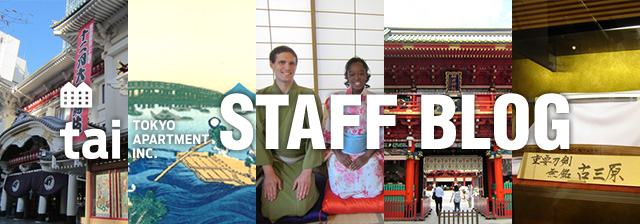July 22, 2017 1:05 PM
Investment funds heat up real estate market
Weekly's Pick up
Weekly Pick up will introduce news to help you learn the trends about Japan market investment.
Global funds investing in real estate and infrastructure have raised $87.5 billion during the first half of this year, largely from financial institutions and pension funds starved for returns in the face of historically low interest rates.
This record pace of inflow is stoking concerns about an overheated market, especially from central banks in Western nations.
Last month, Japanese real estate developer Hulic sold its ownership of eighth-floor office space housed in Ginza Six, the mixed-use shopping center that opened just two months earlier in Tokyo. The buyer, U.S. private equity firm GreenOak Real Estate, paid more than 20 billion yen ($179 million) for the piece of property.
Even though the space is not filled with tenants as yet, GreenOak is betting on strong demand in the upscale Ginza district. Hulic said the asset fetched a higher price than expected, and profit from the sale apparently came to around 8 billion yen.
Hong Kong equity firm Gaw Capital Partners shelled out around 85 billion yen in April for the Minatomirai Center building in Yokohama. That property transaction was the largest in Japan in the first half.
In the real estate market, the rent-to-value ratio is the go-to measure for investment returns. The higher the value, the lower the returns. During the market's peak just before the 2008 global financial crisis, Yokohama's large central city office buildings generated yields just over 5%.
Minatomirai generates returns around 3% for Gaw Capital, but President Kenneth Gaw says the large spread from the debt interest makes the purchase worth it.
Other funds similarly justify such extravagant deals on record-low interest rates. For large buildings in Tokyo's Otemachi district, real investment returns with interest payments priced in stood in the 2% range in 2006-2007. The margin has now climbed above 3%.
Getting in on the action
The growth of these investments has become a worldwide phenomenon. America's Blackstone Group attracted $9 billion in June for a fund focused on European commercial real estate. The company is also busy fundraising for an infrastructure vehicle that will make earnings off operating rights for airports, harbors and other structures.
The amount of money raised by real estate and infrastructure funds has dwarfed the 2006-2007 boom years. In turn, the funds purchased about $150 billion worth of real estate in 2016, and roughly $60 billion in the first half of this year.
These funds attract the bulk of the inflow from pensions and institutional investors scrambling for higher returns in the age of rock-bottom interest rates. Starting last year, Japan Post Bank is shifting a few percent of its portfolio to real estate and similar funds over the course of five to seven years.
"In exchange for taking on the liquidity risk of not being able to immediately cancel contracts, we aim for higher returns than afforded by bonds and stocks," said Tokihiko Shimizu, managing director at Japan Post Bank.
Japan's Government Pension Investment Fund, the largest pension fund on the planet, is also planning to beef up its performance through infrastructure investments this fiscal year. "Stock prices are volatile, and the public will become concerned during a downturn, so we will substitute a part [of our holdings] with assets that will generate income at stable prices," said GPIF President Norihiro Takahashi.
During the nine years since the global financial crisis, asset values have climbed worldwide as interest rates tumbled. In Japan, specialty store Kyukyodo in Tokyo's Ginza sits on the most expensive piece of roadside land in the country. The value shot up 26% from last year to a level beyond the 1992 bubble year. U.S. commercial properties are also worth more than 20% over their previous peak in 2007.
Nikkei
Recent posts
- Mori Building reveals plan for 330-meter tower in $5.5bn downtown redevelopment
- Japanese brokerages pummeled by poor retail business
- Japan real estate recovery defies demographic decline
- Tokyo condo prices tower near record heights in 2017
- Tsukiji move delay clouds Tokyo waterfront plans
- Asia's big money reigns over Japan's property market
- Buying a house in Japan can be an investment in joy
- Japan's quality bubble explains its flat-lined GDP
- SUPPLY OF NEW APARTMENTS SHRINKING AS DEVELOPERS STRUGGLE TO SECURE LAND
- Tsukiji: From fish market to food theme park
Calendar
August
| M | Tu | W | Th | F | Sa | Su |
|---|---|---|---|---|---|---|
| 1 | 2 | 3 | ||||
| 4 | 5 | 6 | 7 | 8 | 9 | 10 |
| 11 | 12 | 13 | 14 | 15 | 16 | 17 |
| 18 | 19 | 20 | 21 | 22 | 23 | 24 |
| 25 | 26 | 27 | 28 | 29 | 30 | 31 |














